Yet another JSON handler I wrote:
With it you can go like this:
let obj:[String:AnyObject] = [
"array": [JSON.null, false, 0, "", [], [:]],
"object":[
"null": JSON.null,
"bool": true,
"int": 42,
"double": 3.141592653589793,
"string": "a α\t弾\n",
"array": [],
"object": [:]
],
"url":"http://blog.livedoor.com/dankogai/"
]
let json = JSON(obj)
json.toString()
json["object"]["null"].asNull // NSNull()
json["object"]["bool"].asBool // true
json["object"]["int"].asInt // 42
json["object"]["double"].asDouble // 3.141592653589793
json["object"]["string"].asString // "a α\t弾\n"
json["array"][0].asNull // NSNull()
json["array"][1].asBool // false
json["array"][2].asInt // 0
json["array"][3].asString // ""
As you see no !? needed between subscripts.
In addition to that you can apply your own schema like this:
//// schema by subclassing
class MyJSON : JSON {
override init(_ obj:AnyObject){ super.init(obj) }
override init(_ json:JSON) { super.init(json) }
var null :NSNull? { return self["null"].asNull }
var bool :Bool? { return self["bool"].asBool }
var int :Int? { return self["int"].asInt }
var double:Double? { return self["double"].asDouble }
var string:String? { return self["string"].asString }
var url: String? { return self["url"].asString }
var array :MyJSON { return MyJSON(self["array"]) }
var object:MyJSON { return MyJSON(self["object"]) }
}
let myjson = MyJSON(obj)
myjson.object.null // NSNull?
myjson.object.bool // Bool?
myjson.object.int // Int?
myjson.object.double // Double?
myjson.object.string // String?
myjson.url // String?
